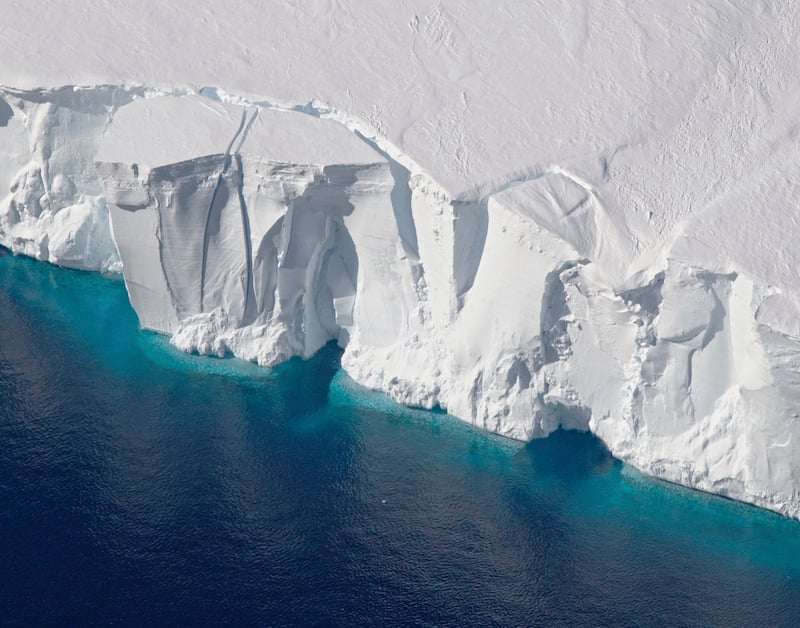A new study took a close look at what happens if climate change accelerates and continues to chip away at the floating ice shelves of Antarctica.

(CN) --- The worst-case scenario is always on the horizon. It holds our attention, but even the deer caught in the headlights has a chance to act. That’s why researchers at the University of Reading in the U.K. stress the risk of a catastrophic Antarctic ice shelf collapse and sea level rise due to climate change in a study published Thursday in the journal Geophysical Research Letters.
The study evaluated the effects of global temperature increases of 1.5, 2 and 4 degrees from pre-industrial levels which will lead to greater melt and runoff and increase the risk of destabilization.
Antarctic ice shelf destabilization is likely not watercooler talk. First, let’s meet the ice shelf: a floating platform that forms around a glacier or ice sheet flows down to a coastline and to the ocean surface.
In the summer, ice at the top melts and trickles down into small air gaps, where it refreezes. But a decrease in snowfall in the last few decades means that more water pools or flows into those gaps, refreezing while changing the interior of the ice shelf.
Any signs of water on the surface spells some concern for the interior, according to the study authors.
The study set its sights on four ice shelves that could be impacted by an increase in global temperatures.
The Shackleton Ice Shelf, named after the famous Irish Antarctic explorer, extends along East Antarctica for an along-shore distance of about 240 miles and juts out around 90 miles toward the sea. It’s roughly 13,000 square miles.
The largest remaining ice shelf on the Antarctic Peninsula is the Larsen which at one point covered 33,000 square miles, but since the mid-1990s has seen several collapses and now covers roughly 26,000 square miles. A section of the shelf, Larsen C, was the focus of the study along with two other ice shelves.
The research team studied the effects of incremental warming rather than a specific gradual timescale. They used Modèle Atmosphérique Régional, an atmosphere model designed for climate research.
There are multiple variables at play when it comes to analyzing the melt and accumulation of snow on the surface of an ice shelf. This surface mass balance is decreased due to climate change because there is more meltwater, which then runs off the ice shelves. Once this process runs away, ice shelves undergo what’s called hydrofracturing, when they crack and disintegrate.
As much as 34% of all Antarctic ice shelves would be at risk of destabilization under 4 degrees of warming. As much as 67% of the ice shelf area in the Antarctic Peninsula in the western end of the continent would be at risk of collapse.
"Ice shelves are important buffers preventing glaciers on land from flowing freely into the ocean and contributing to sea level rise,” said research scientist Ella Gilbert with University of Reading's Department of Meteorology, in a statement. “When they collapse, it's like a giant cork being removed from a bottle, allowing unimaginable amounts of water from glaciers to pour into the sea.”
In an email Gilbert said, “I hope that the average reader takes away that the more we do to limit warming, the lower the risk of ice shelf collapse and therefore sea level rise will be.”
Subscribe to Closing Arguments
Sign up for new weekly newsletter Closing Arguments to get the latest about ongoing trials, major litigation and hot cases and rulings in courthouses around the U.S. and the world.








